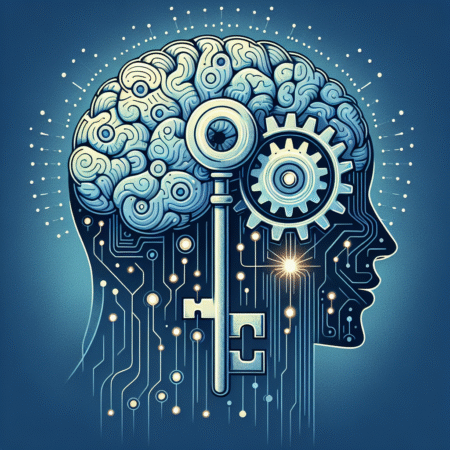The Intersection of Minds: Artificial Intelligence and Neuroscience
We live in a world where machines are starting to think, learn, and evolve. Imagine a computer that can interpret human thoughts and emotions—this is not science fiction; it’s happening now. “Mind & Machine: How AI is Unlocking the Secrets of Our Brain” dives deep into this fascinating realm, where artificial intelligence not only mimics human cognition but propels our understanding of the brain. This exploration touches on profound questions about who we are and what it means to be human in this new age.
Neuroscience is the study of the nervous system, particularly the brain. It helps us understand complex functions such as memory, emotion, and decision-making. On the other hand, AI is transforming various fields—think self-driving cars, facial recognition, and personal assistants like Siri. Together, these fields create a synergy that illuminates the intricacies of the human mind.
AI tools analyze vast datasets gathered from brain scans and cognitive tests. Researchers use these insights to trace how memories form and how our emotions evolve. With techniques like machine learning, AI systems can spot patterns that even the brightest researchers might miss. This transformation allows us not only to decode behavior but also to challenge our assumptions about human identity.
Ethical Dilemmas: The Challenges of Cognitive Enhancement
The implications of these advancements spark intriguing debates. What happens when machines not only understand but attempt to enhance our cognitive abilities? This question leads us to consider ethical boundaries. How do we decide what is acceptable when technology can alter brain functions?
The potential for cognitive enhancement brings another layer of complexity. As AI continues its rapid growth, we face issues of access. If only a select few can afford advanced brain-enhancing technologies, what happens to social equality? Will this divide widen the gap between the privileged and the underprivileged?
These concerns do not reside in labs alone; they affect everyday people. The essence of being human is at stake as technology transforms how we think and interact. Our moral responsibility increases as we navigate these uncharted waters.
The interplay between AI and neuroscience showcases not only the wonders of science but also the dilemmas it creates. Each advancement prompts a reevaluation of our values and our understanding of humanity. This exploration isn’t just about replacing human intelligence; it’s about redefining it.
As we harness the capabilities of AI within our understanding of the brain, we must confront these fundamental questions. What does it mean to be human when machines can replicate or even surpass our cognitive abilities? The answers might be more complex than we ever imagined, shaping the future of our collective existence.
The journey through understanding our minds alongside machines offers a roadmap for potential growth. It calls for caution, curiosity, and a commitment to ethical evolution as we redefine our place in this brave new world. Embracing this fusion of technology and neuroscience will demand responsible dialogue and thoughtful consideration of what we truly want our future to look like.
References for further exploration include works from leading journals in neuroscience and ethics, which detail the ongoing research and the discussions surrounding these themes. As we ponder our path forward, let’s remain inquisitive and open-hearted in exploring what lies ahead.
Expand Your Tech Knowledge
Dive deeper into the world of Cryptocurrency and its impact on global finance.
Access comprehensive resources on technology by visiting Wikipedia.
OPED_V1

